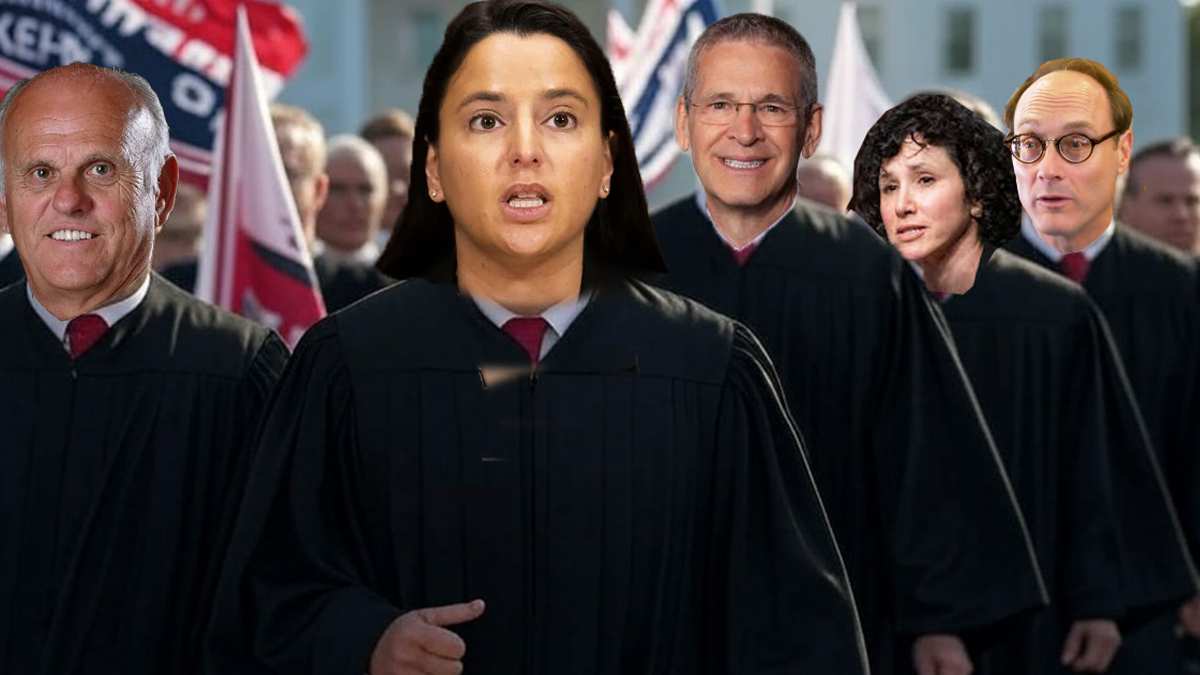Washington, D.C. — In what critics are calling a “legal insurrection,” several unelected, politically appointed judges have recently issued rulings that challenge the Trump administration’s efforts to curb what it describes as rampant government waste and spiraling federal expenditures.
The controversy began escalating when, in late January 2025, the Trump administration announced a sweeping directive to freeze federal grants and loans, aiming to eliminate what it labeled as wasteful spending on programs not aligned with the President’s agenda. This move was intended to address what the administration has repeatedly described as “out of control spending” across various federal sectors.
However, a series of judicial interventions have put these initiatives on hold. Notably, Judge Loren L. AliKhan from the U.S. District Court for the District of Columbia issued a temporary stay against the spending freeze, arguing that the executive’s actions could interfere with congressional appropriations and cause irreparable harm to organizations reliant on federal funds.
Another significant ruling came from Judge John McConnell, Jr. of the U.S. District Court in Rhode Island, who criticized the Trump administration for not fully complying with his order to unfreeze federal spending. McConnell’s decision underscored the tension between judicial oversight and executive action, asserting that the administration’s maneuvers were “likely unconstitutional.”
These judicial decisions have sparked a fierce debate over the separation of powers, with critics of the judiciary arguing that these judges are overstepping their roles by dictating fiscal policy. On social media and in conservative circles, there’s been vocal opposition to what they perceive as “judicial activism” aimed at thwarting the President’s agenda. Posts on X (formerly Twitter) have highlighted sentiments of a “judicial coup” by Democrat-appointed judges, stirring up discussions on the balance of power within the U.S. government.
Supporters of the judges’ actions, however, argue that these rulings are necessary to check the executive branch’s overreach, especially when it comes to the appropriation of funds legally designated by Congress. They emphasize that judicial review is a fundamental aspect of the U.S. system of checks and balances, designed to prevent abuses of power.
The legal battles are set against a backdrop of ongoing debates about the role of the judiciary in administrative actions. The Supreme Court’s recent decision to eliminate “Chevron deference” — which previously allowed agencies considerable leeway in interpreting laws — has further complicated the landscape, potentially empowering judges to more aggressively scrutinize federal policy decisions.
As these conflicts unfold, they are likely to test the boundaries of constitutional law, particularly concerning the Insurrection Act and the powers of the executive versus judicial branches. The sentiment on X trends towards a recognition that this scenario might lead to a significant Supreme Court case, examining the extent to which the judiciary can intervene in executive financial policy.
The administration has vowed to challenge these judicial obstructions, with hints from the White House that they are prepared to take the matter to higher courts to assert their policy on spending cuts. Meanwhile, Democrats and numerous advocacy groups applaud the judges’ interventions as a bulwark against what they see as an unconstitutional overreach by the executive branch.

